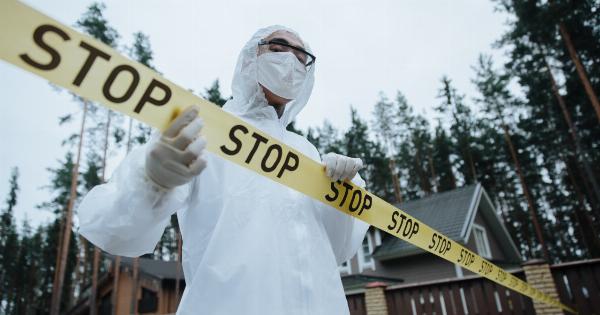Viral hepatitis is a serious condition caused by inflammation of the liver due to infection with a virus. The different types of viral hepatitis include hepatitis A, B, C, D, and E.
The symptoms of hepatitis can range from mild to severe, depending on the type of virus. However, all types of viral hepatitis can damage your liver over time and lead to serious health problems.
Symptoms of Hepatitis A
Hepatitis A is a highly contagious virus that is transmitted through contaminated food, water, or close contact with an infected person. The symptoms of hepatitis A can appear suddenly and include:.
- Fatigue
- Nausea and vomiting
- Abdominal pain
- Dark urine
- Pale stools
- Jaundice (yellowing of the skin and eyes)
Symptoms of Hepatitis B
Hepatitis B is a viral infection that is transmitted through contact with infected blood, semen, or other bodily fluids. The symptoms of hepatitis B can range from mild to severe and can take several months to appear. Symptoms include:.
- Fever
- Fatigue
- Nausea and vomiting
- Abdominal pain
- Dark urine
- Pale stools
- Joint pain
- Jaundice (yellowing of the skin and eyes)
Symptoms of Hepatitis C
Hepatitis C is a viral infection that is transmitted through contact with infected blood. Many people with hepatitis C have no symptoms, but others may experience:.
- Fatigue
- Joint pain
- Muscle aches
- Fever
- Nausea and vomiting
- Abdominal pain
- Dark urine
- Pale stools
- Jaundice (yellowing of the skin and eyes)
Symptoms of Hepatitis D
Hepatitis D is a rare virus that requires the presence of hepatitis B to cause infection. The symptoms of hepatitis D are similar to those of hepatitis B and may include:.
- Fatigue
- Nausea and vomiting
- Abdominal pain
- Dark urine
- Pale stools
- Joint pain
- Jaundice (yellowing of the skin and eyes)
Symptoms of Hepatitis E
Hepatitis E is a viral infection that is transmitted through contaminated food or water. The symptoms of hepatitis E are similar to those of hepatitis A and may include:.
- Fatigue
- Nausea and vomiting
- Abdominal pain
- Dark urine
- Pale stools
- Jaundice (yellowing of the skin and eyes)
When to See a Doctor
If you experience any of the above symptoms, it is important to see a doctor right away. Hepatitis can be diagnosed through blood tests, and early treatment can prevent serious liver damage.
In addition, if you have been in contact with someone who has a viral hepatitis infection, or if you have recently traveled to a region where hepatitis is common, you should be tested for the virus.
Preventing Viral Hepatitis
The best way to prevent viral hepatitis is through vaccination. There are vaccines available for hepatitis A and B, and it is recommended that all adults receive these vaccines.
In addition, you can reduce your risk of infection by practicing good hygiene, avoiding risky behaviors such as sharing needles or having unprotected sex, and avoiding contact with contaminated blood or bodily fluids.
Conclusion
Viral hepatitis can be a serious and potentially life-threatening infection. However, the symptoms of hepatitis can be treated, and with early diagnosis and treatment, most people with hepatitis can lead normal, healthy lives.
If you suspect that you may have the virus, it is important to see a doctor right away to receive a proper diagnosis and treatment.





























